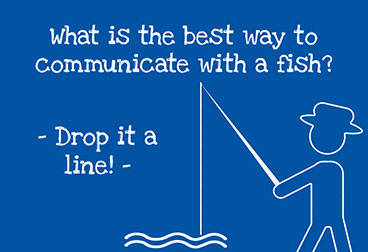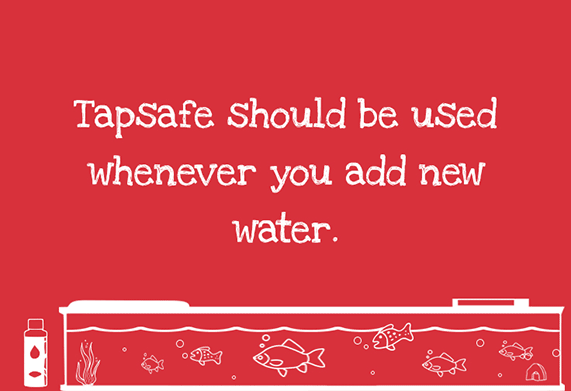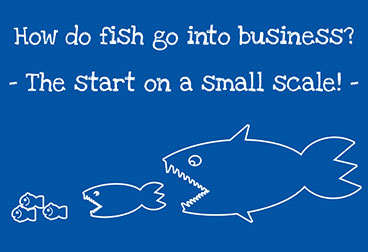Fish keeping FAQs
Here are the answers to the questions we get asked the most about keeping fish. You’ll be an expert in no time!
I don’t know what’s wrong with my fish, what should I do?

Visit our Fish Doctor to diagnose what’s wrong and identify symptoms similar to those of your fish. Click through the questions and see our recommendations for what to do next.
It is always recommended to test your aquarium water with a product such as our Complete Aquarium Dip Tests, which will highlight any underlying water quality problems. Issues with water quality will often make your fish appear unwell and can lead to outbreaks of disease.
My fish is floating, what’s wrong?

Buoyancy issues can be caused by several aquarium problems, but often a swimbladder infection.
Check for other symptoms related to Swimbladder infections, this can be especially prevalent in fancy Goldfish.
You can also test your aquarium water which will highlight any underlying water quality issues which could be affecting the buoyancy of your fish.
Why has my fish stopped eating?
If your fish have lost their appetite, check for physical or behavioural symptoms of illness. Visit our Fish Doctor to diagnose what’s wrong, or click here for ideas on how to treat fish who are a bit under the weather and not eating.
We would also recommend testing your water for quality issues which may have led to your fish feeling unwell.
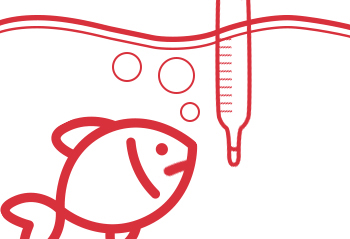
Should I drain my aquarium?

You should never have to completely drain your aquarium, in fact, doing so is likely to cause more bad than good.
Any water quality problems should be easily addressed by completing small but regular water changes.
Removing large amounts of water from your aquarium will stress your fish and could also lead to filtration problems. If you are having problems in your aquarium, visit our Fish Doctor to diagnose what’s wrong and find solutions to common aquarium problems.
What is the Nitrogen cycle?
The Nitrogen Cycle is a naturally occurring cycle driven by the biological filter in your aquarium which processes waste in the water.
Watch our short video that explains the process.
What is New Tank Syndrome/New Aquarium Syndrome?
In new aquariums, the filter is not biologically mature. This means the essential bacteria required to nitrify – or clean – the toxic waste produced by fish have not yet become established on the filter media and the water can become unsafe for your fish.
To give this process a head-start, we recommend the use of a filter booster additive such as Fast Filter Start. Filter Boosters add bacteria to the filter, which reduces the time usually required to mature a filter.
Visit our pages on the Nitrogen Cycle and New Tank Syndrome to understand what goes on in a new aquarium and the best way to prevent early problems.
What is ‘cycling’ a fish tank?
The term ‘cycling’ is used to refer to the process of getting the filter started and mature with the correct level of good bacteria that process fish waste.
It refers to the natural process ‘The Nitrogen Cycle‘ that we generate in the aquarium to break down the poisonous fish waste into safer compounds.
Watch our short Nitrogen Cycle video that explains the process.
How many fish should I have for a beginner aquarium?

If you’re new to fish keeping, it’s best to start with a small number of fish to ensure that you can properly care for them. Starting small will allow you to learn the basics of fish care and ensure that your tank and fish stay healthy.
What is the best fish for a beginner aquarium?

Some good options include goldfish, guppies, tetras, and platys. These fish are hardy and easy to care for, making them ideal for those new to fish keeping.
Goldfish are a popular choice for beginners, because they are hardy and can tolerate a wide range of water conditions. They also have a long lifespan (up to 15 years) and come in many different colors and varieties.
.
How many fish can I keep in my aquarium?

The general rule is 1cm of tropical fish (adult size) per 1 litre of water, for cold water fish reduce this to 0.5cm of fish per litre – see our article on fish stocking levels for further advice.
Why has the water gone cloudy?

Cloudy, or milky water can occur due to several reasons:
1. General dirt and dust – usually introduced via the gravel or substrate. Ensure your filter is working well and the cartridge is replaced when it looks dirty. Using a product that clumps small particles – such as Quick Clear – will help speed up this process.
2. Poor water quality. Although most water quality issues are invisible, there are occasions when the health of the water becomes visible and turn the water cloudy. It is important to test your water with an aquarium water test kit to establish if there are any underlying problems that need addressing. Carry out your regular water changes to maintain clean, healthy water.
3. Overfeeding or over stocking the aquarium can also cause the water to be filled with dirt particles. Only feed your fish 2-3 times a day (in a mature aquarium) and only enough that they will eat in a few minutes. Any uneaten food should be scooped out with a net. See feeding your fish for more information.
Only add the recommended amount and size of fish, see How many fish.
Why has the water gone green?

Green water is caused by tiny algae cells suspended in the water. This algae grows when there is excess light and/or food.
Test the water for high nitrate levels and address high readings with water changes and by adding live plants which use up the food.
Ensure the aquarium is not positioned in direct sunlight and turn the lights off at night to replicate a day/night cycle.
Also check that the algae is not growing on the inside of the glass (this is a different type of algae). If it is, remove using a magnetic aquarium glass cleaner.
Find out more in our article Understanding and treating green water in your aquarium.
Why are my fish sick?
If your fish are becoming sick, dying or showing other symptoms of being unwell, it is important to test your aquarium water with an aquarium water test kit. Common water problems are invisible to the naked eye.
Prevention is better than cure; so good aquarium care and purchasing healthy fish will set you up well.
However, disease and fish problems can occur for many different reasons.
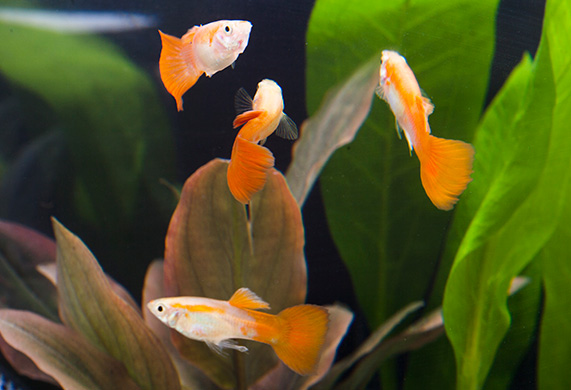
Visit our Fish Doctor to diagnose what’s wrong with your fish and how to treat the problem, then read the article Understanding the causes of fish sickness and stress to prevent disease to prevent future problems.
My fish is flicking on the ornaments, what’s wrong?

Flicking or scratching on ornaments is often a sign of bad water quality. Test your aquarium water using an aquarium test kit to identify what is wrong, and treat as recommended.
Flicking and scratching may also be a sign of parasitic infection, however in this instance there would usually be visible symptoms such as small spots, or obvious parasites on the skin.
Visit our Fish Doctor to diagnose what’s wrong and discover the best treatment for your fish and aquarium.
Why is my fish jumping?
Erratic behaviour, such as a jumping, is often a sign of fish discomfort which can be caused when they are moved or badly disturbed. But it can also be due to bad water quality. Test your aquarium water using a test kit and treat the results accordingly.
Visit the Fish Doctor to diagnose what’s wrong and discover the best treatment for your fish and aquarium.

Should I remove the sick fish from the aquarium?

In most cases removing fish from their home is likely to cause more harm than good. A separate aquarium will have different water quality, filtration, temperature and could cause unnecessary stress, making recovery harder.
If you are concerned that your fish is being bullied by others when sick, you could consider using a large floating fry net which will separate the fish while you treat the underlying problem in the entire aquarium.
What do I do with dead fish?

We would not advise flushing livestock down the toilet. Instead, wrap in a paper towel and put in a bin or dustbin.
How much food should I give to my fish?

You should only feed as much as your fish will consume in 2-3 minutes (in a mature aquarium), a couple of times a day. Uneaten food should be removed from the aquarium to reduce the build-up of waste which can make the water toxic to fish.
See our Feeding your fish article for more information.
How do aquarium fish sleep?

Fish are fascinating creatures with unique sleeping habits. Unlike humans, fish do not have eyelids to close while they sleep. Instead, they enter a state of rest where their metabolism and activity levels decrease. This resting state is crucial for fish to conserve energy and allow their bodies to repair and grow.
Some fish, like bettas and angelfish, may find a secluded spot to rest in the aquarium, such as behind plants or decorations. Others, like clownfish and wrasses, may bury themselves in the sand or find a crevice to hide in while they sleep.
.
